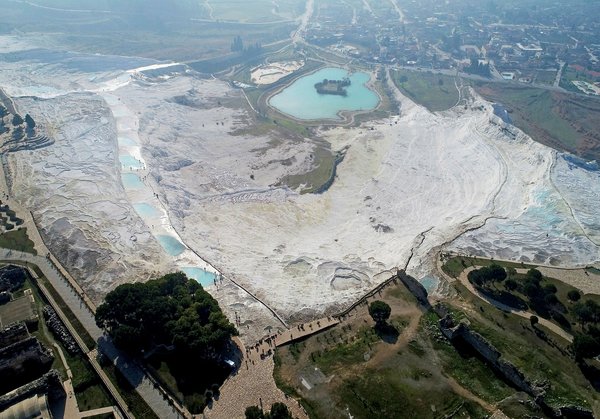Turkey's "white paradise" Pamukkale, a UNESCO World Heritage site, offers unique wellness treatment opportunities with its antique hot springs and mineral-rich thermal pools.
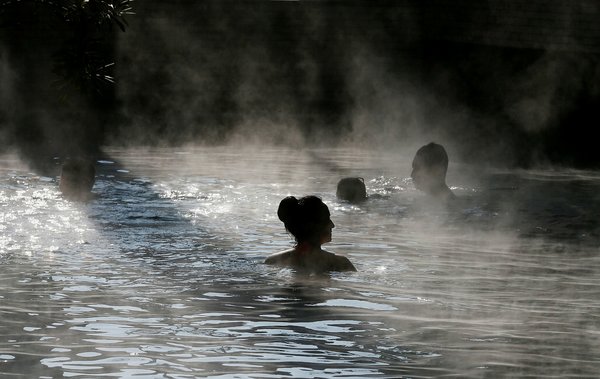
Located in Turkey's southwestern province of Denizli, the Pamukkale site, standing over the ruins of the ancient city of Hierapolis, has been known as a spa town and thermal treatment center for millennia since the Roman times, and especially famous for its white limestone travertines, shaped by calcium-rich hot springs.
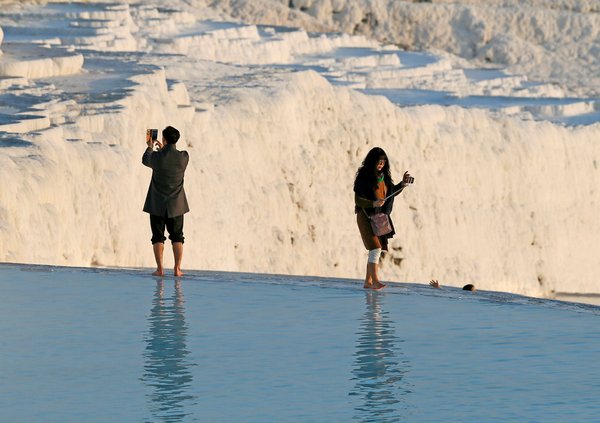
A natural spring, situated at a close proximity to the white terraces of travertine, is particularly popular with tourists. Dating from ancient Hierapolis, this pool formed naturally after the collapse of a series of columns in an earthquake in 692 AD, which caused thermal water to accumulate.
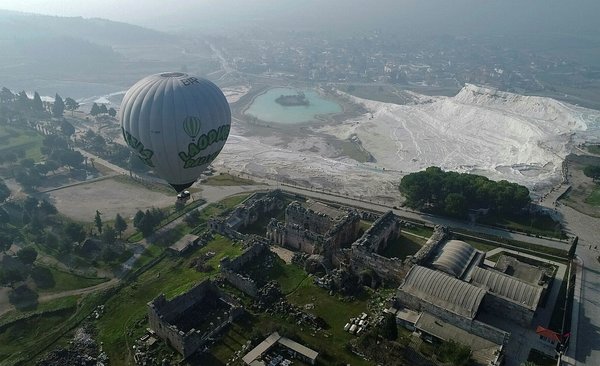
With its water temperature fixed at 36 degrees Celsius (96 F) regardless of the season, the pool offers its visitors a unique experience. It is believed to have healing benefits for cardiovascular diseases, rheumatism, skin and nerve diseases as well as intestinal disorders if it is drunk.

Gazi Murat Sen, the president of a Denizli-based local tourism and hotel management association, told Anadolu Agency that Pamukkale, which he noted was one of the most visited tourist attractions of the country, had recently regained its reputation as a center of health tourism.

"All facilities and hotels were quickly sold out for the upcoming semester," Sen said.
He drew attention to the Karahayit region of the province, saying that it could soon be declared "a city of thermal cure".
"If this happens," he said, "we think it will boost the tourism investments in our city."
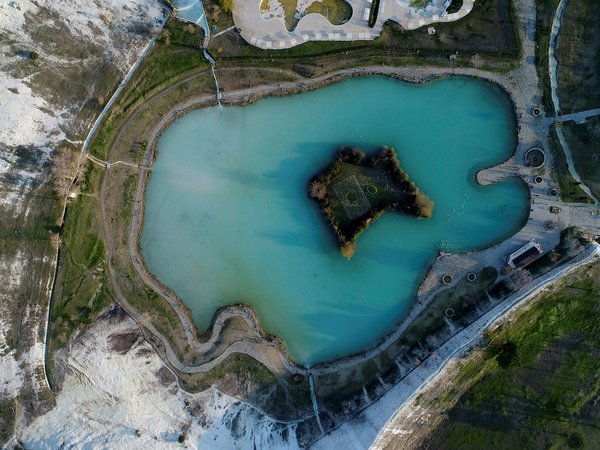
The unusual red water of the Karahayit thermal pool, which remains at an average of 60 degrees Celsius (140 F) all year round, wells up from beneath the calcite rocks and is rich in iron.
This red water is believed to help those with rheumatism, asthma, bronchitis, and skin diseases.
